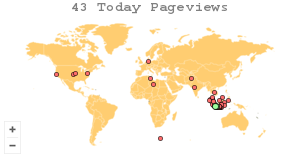MANAJEMEN PENDIDIKAN DALAM PERSPEKTIF AL-QUR’AN DAN AS-SUNNAH
DOI:
https://doi.org/10.47498/bashair.v2i2.1321Keywords:
Management, Education, Qur'an and As-SunnahAbstract
Islamic education is becoming more prevalent throughout society and is in high demand due to its perceived academic and Qur'an memorization advantages. In addition to strong management, good education is attained through good administration. According to the Qur'anic verses, management already exists and is illustrated by the Prophets and Apostles of his day. Therefore, the purpose of this article is to study and describe educational management from the Qur'an and Sunnah's perspective. There are numerous verses in the Qur'an that discuss school management, particularly the four educational responsibilities of Planning, Organizing, Acting, and Controlling (POAC). Some verses can be understood quickly to be explanations of managerial functions, while others require the reader to have advanced cognitive abilities (HOTS). The history of the Prophet Muhammad saw is likewise heavily influenced by the four managerial functions. Therefore, it may be stated that Islam had management science in the Qur'an and was exhibited by the Prophet Muhammad saw before Europeans were aware of it.
References
Falah, A. (2010). Hadits Tarbawi. Kudus: STAIN Kudus.
Goffar, A. (2020). Manajemen Dalam Islam (Perspektif Al-Qur’an dan Hadits). Jurnal STAI At-Taqwa Bondowoso.
Irawan, d. (2019). Pengantar Wahyu Memandu Ilmu. Bandung: Rajagrafindo Persada.
M.Aziz, M. d. (2020). Manajemen Dalam Perspektif Ayat-Ayat Al-Qur'an. Medan: Perdana Publishing.
Mahrus. (2019). Qur'anic Perspective on Empowering Humanistic Foreign Languange Teaching. Al-Bayan-Journal of Qur'an and Hadith Studies 17 , 168-194.
Mahrus. (2021). Qur'anic Figurative Languange to Develop High Order Thinking Skills (HOTS) and Religious Tolerance Among Languange Learners. Al-Bayan-Journal of Qur'an and Hadith Studies, 172-199.
Syafiie. (2000). Al-Qur'an dan Ilmu Administras. Jakarta: Rineka Cipta.
Downloads
Published
Issue
Section
License
Authors who publish articles in Basha'ir: Jurnal Studi Al-Qur'an & Tafsir agree to the following conditions:
- The author retains copyright and grants the Basha'ir Journal the right from the first publication with the work simultaneously licensed under a Creative Commons Attribution-ShareAlike 4.0 International (CC BY-SA 4.0) license that allows others to make changes, adjust and build on the work with recognition of the author's work and initial publication in the Journal.
- Authors are allowed to copy and redistribute published versions of works in journals (for example, posting them to institutional repositories or publishing them in a book), with recognition of their initial publication in Basha'ir: Jurnal Studi Al-Qur'an & Tafsir.
- Authors are allowed and encouraged to post their work online (for example, in institutional repositories or on their websites) before and during the submission process, as it can lead to productive exchanges, and increase citations of published works






